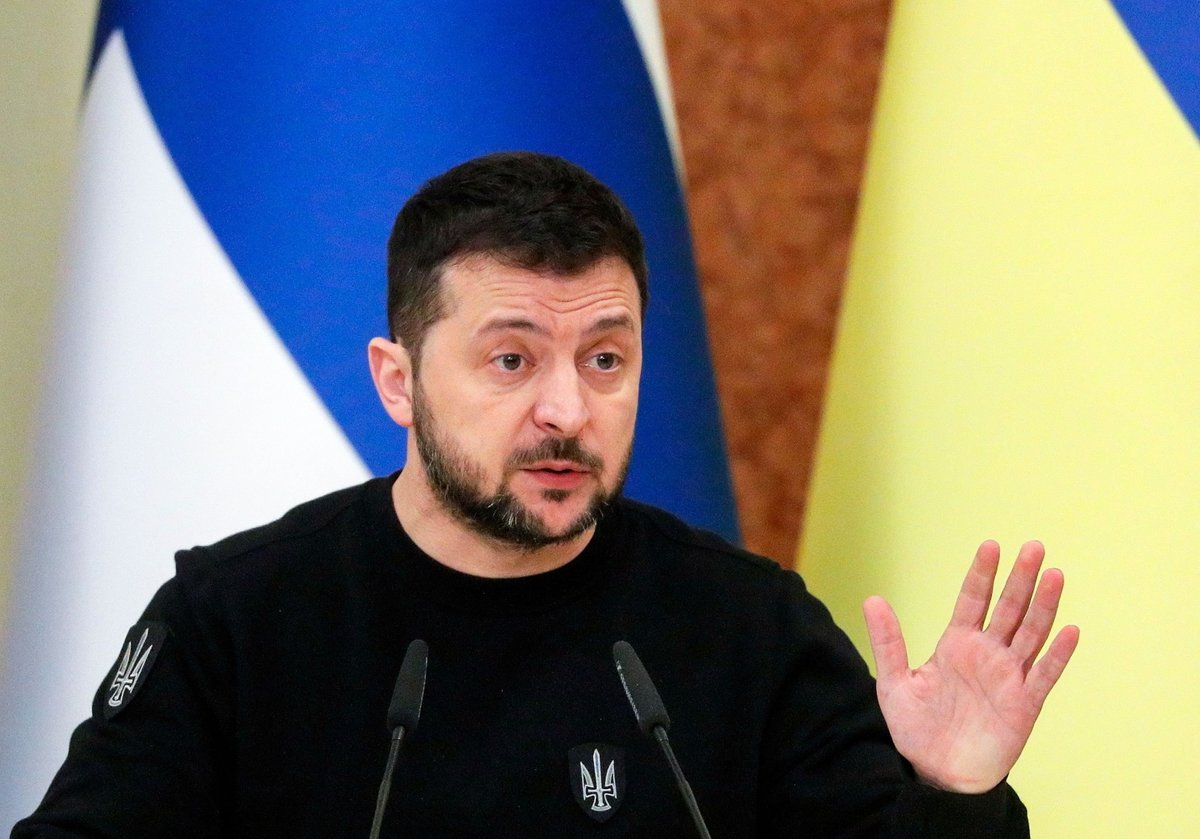The Ukrainian chief slammed the International Olympic Committee for wanting to lift ban on Russian athletes
Ukraine’s President Volodymyr Zelensky remarks on banning Russian athletes at the 2024 Olympics in Paris has incited critiques from several commentators, including some sports experts in Qatar.
In his nightly video address earlier this week, Zelensky voiced there can be no neutrality in sports while Ukrainian athletes are dying on the battleground in the Russian Invasion.
“To bring Russian athletes back into the Olympic Games are attempts to tell the whole world that terror is somehow acceptable,” the Ukrainian president said.
“As if you could shut your eyes to what Russia is doing in Kherson, Kharkiv, Bakhmut, and Avdiivka,” Zelenskiy added, citing the recent strikes in his country cities.
The former comedian and actor drew comparisons to the Nazi-hosted 1936 Olympic games, arguing that “there was a major Olympic mistake,” he said.
“The Olympic movement and terrorist states definitely should not cross paths.”
Zelensky’s criticism comes a week after the International Olympic Committee said it welcomed a proposal from the Olympic Council of Asia for Russian and Belarusian athletes the chance to compete in Asia.
The director of the Journalism and Strategic communications programme at Northwestern University in Qatar (NU-Q), Craig LaMay has called Zelensky’s comments warranted.
“Zelensky isn’t alone. The calls to ban Russia from the 2024 Olympics come from other countries, too,” LaMay told Doha News.
“It’s worth noting that Russia hasn’t appeared in an Olympics under its own flag and anthem since Sochi in 2014, but this time the issue isn’t doping. It’s about a murderous war, and if Russia were really that concerned about appearing in the Olympics, it could end the war,” the director added.
In addition, LaMay warns that sports organisers could storm trouble if Ukrainian athletes aren’t allowed.
“The worst possible outcome, certainly for the IOC and Paris organisers, is if somehow Russian athletes compete in Paris but Ukrainian ones do not.”
Last month at the Australian Open, Aryna Sabalenka and Elena Rybakina competed as neutrals due to the condition set by Tennis Australia.
The rule enforced Sabalenka’s Belarusian flags to be not allowed inside the venue, and even the winner’s trophy didn’t mention the tennis player’s nationality.
The crowned Grand Slam winner wasn’t publicly moved by the decision, voicing, “I think everyone still knows that I’m Belarusian player. That’s it,” she told reporters.
However, Ukrainian tennis star and Olympic bronze medalist Elina Svitolina has come out calling to ban Russian and Belarusian athletes.
“They neither are politicians, nor soldiers and should not be treated as such.”
Khristo Ayad told Doha News
“The Olympics are the biggest dream and ultimate privilege for athletes. They are the largest platform for inclusion and diversity in sports, capturing the attention of the world,” former world No. 3 Svitolina said in in a statement released on social media on Wednesday.
“With this in mind we must stick to banning Russian and Belarusian
athletes, sending a strong message worldwide, that we are united in the sanctions imposed against Russia and Belarus and that there are consequences for the heinous acts of their governments; their lives cannot continue as normal and the world, nor the Russian or Belarusian people can be ignorant of the atrocities they are committing in Ukraine.”
Khristo Ayad, a strategic communications consultant and public diplomacy analyst based in Doha, called the decision of IOC’s not to follow calls for banning Russian and Belarusian athletes “hardly a soft one.”
“The Olympic Games in question happening only in 2024, we will likely see the IOC remain under mounting pressure in light of the Ukraine conflict. The committee’s decision as it stands now, attempts to bridge very hardened positions in what they say, the spirit of the Olympic Movement. Perhaps there also is an endeavour not to add further fuel to the fire at this time, when the crisis is moving into a new phase,” Ayad told Doha News.
“The IOC’s reasoning not to follow calls for banning Russian and Belarusian athletes in any case, is hardly soft one, but clearly critical towards the two states. It does in the same time maintain a remarkably strong stance in highlighting the individual “athletes’ right not to be discriminated against just because of their nationality,” Ayad added in his statement to Doha News.
The Qatar-based public diplomacy analyst pointed out that banning athletes based on the wrongdoings of their respective countries is unfair, saying “they neither are politicians, nor soldiers and should not be treated as such.”
“It is these rare opportunities for competing on the highest levels that they live and work towards throughout their careers. Traditionally moreover, the Olympic Games carry forward a very particular message of unity and peace among peoples. These are the aspects that underpin the IOC’s current decision.”
The IOC has reiterated that the sanctions against the Russian and Belarusian states and governments are not negotiable.







